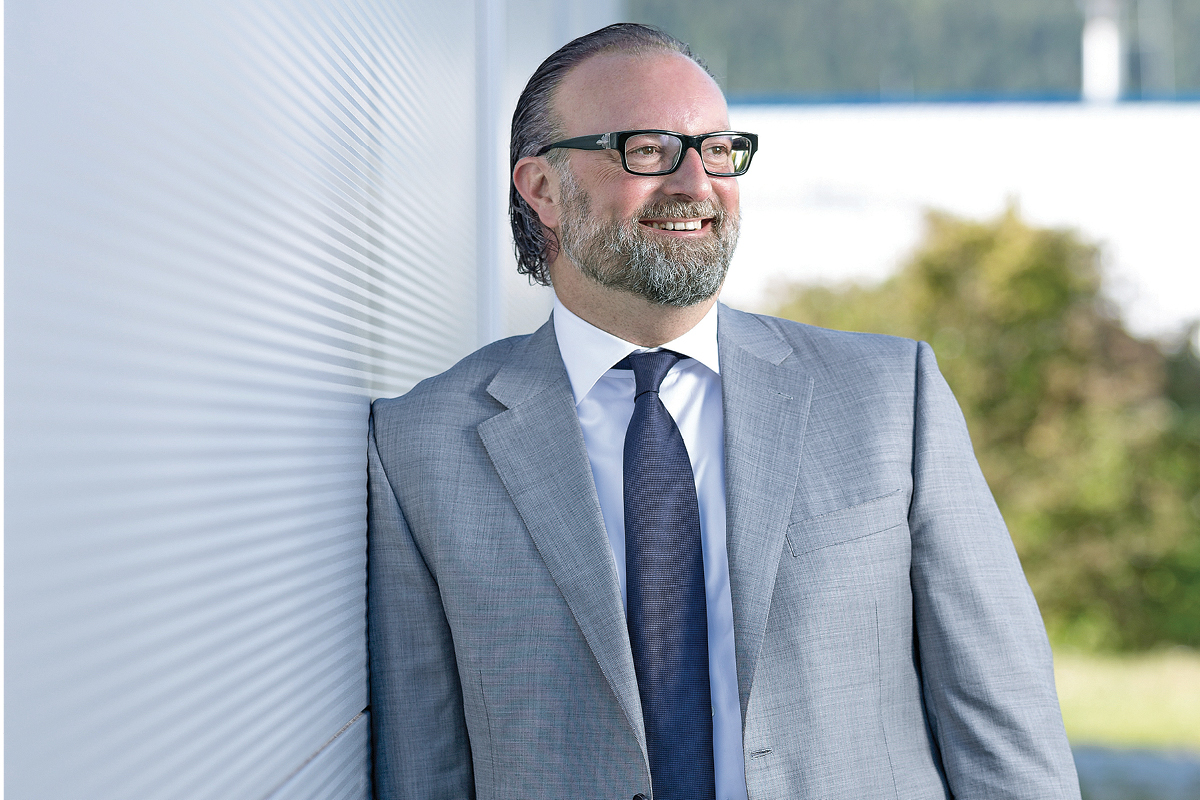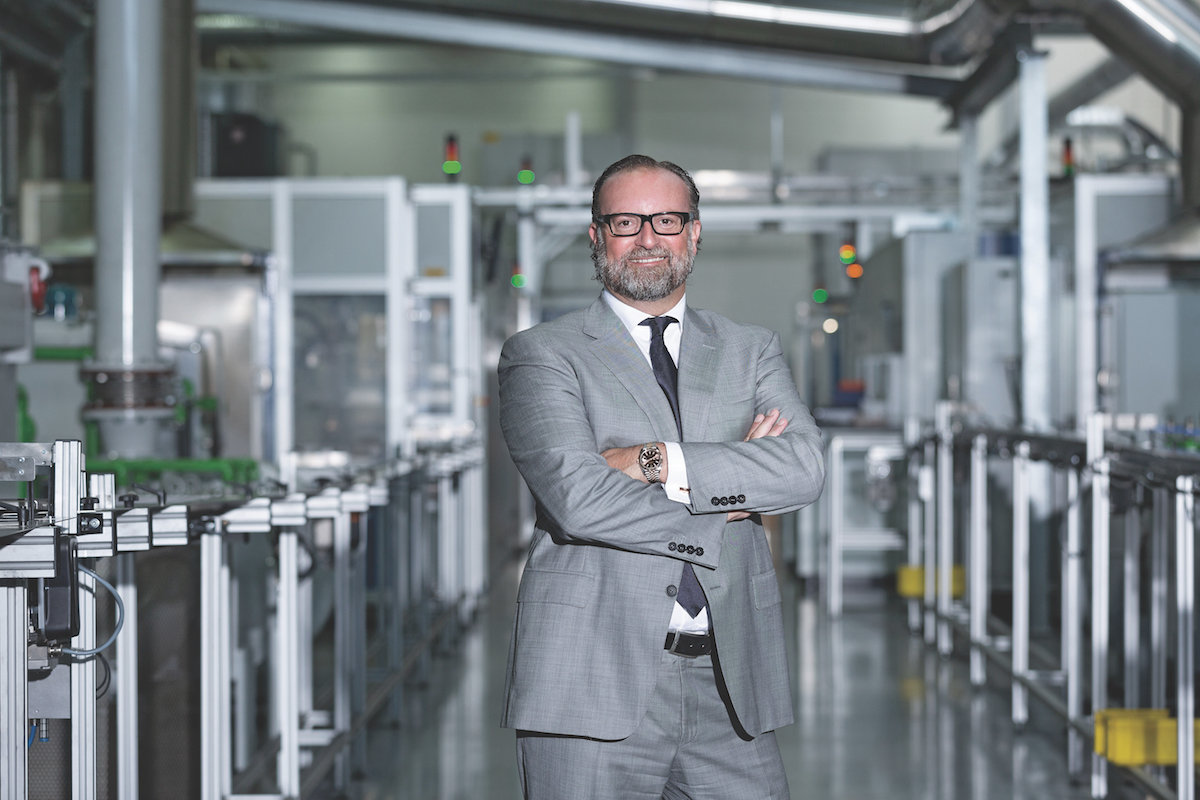Marius Gutes may have been new at PMG Holding GmbH in 2018, but he was certainly not new to the automotive industry. He left university in 1995, armed with a mechanical engineering degree and graduating with Honours from Universitat Politècnica de Catalunya in Barcelona. Since then, he’s accrued vast experience working in global organisations, along the way earning a strong reputation as a leader and emerging as the perfect candidate to take on the role of CEO at PMG.
With headquarters in Füssen, Germany, PMG manufactures and supplies powder metallurgy parts, components and sub-assemblies for the automotive industry. Founded in 1960, and originally named Sinterstahl, the company was renamed PMG in 2005 and since December 2011 has operated as a subsidiary of investment group Vermögensverwaltung Erben Dr. Karl Goldschmidt GmbH (VVG).
Being a part of VVG means being owned by a group with a history of producing specialty products for B2B customers – something the Goldschmidt family has focused on since 1847. VVG leads by setting goals and through the attribution of resources. It searches out long-term engagements, aimed at profitable and sustainable growth, while leaving operational responsibility with operational entities.

In just a couple of months, Marius will celebrate his first year as CEO of the company he describes as ‘mid-size and just right’ for implementing new strategies. The business employs around 1,700 people at eight plants and sales offices in Spain, China, Romania, the US and Germany, with additional sales representatives based in Italy, France, Japan and Mexico.
“I feel most comfortable in a company this size,” he explains. “A massive organisation doesn’t open itself to implementing strategies, a small company is restricted by budget and the means to achieve.”
Spanish is Marius’ mother tongue, but he’s also fluent in German, French and English. Just a few years ago, he completed a Leadership Development program in General Management at Harvard Business School. Prior to PMG, he spent six years at the automotive global supplier Hilite International, joining as Vice President of Program Management in 2011 before leaving in 2017 as the Executive Vice President of the Engine Business Unit. He has also enjoyed executive roles at Inteva and ArvinMeritor.
Securing him for the top job at PMG was a savvy move for the company. “At Hilite, we were customers of PMG,” he explains. “They were a very small supplier for us, and our business with them was small, but I knew all the parts and most importantly I knew the sections of the market these parts were going to.
“Another advantage was that I was familiar with all of PMG’s competitors, other automotive suppliers such as GKN and Miba. So that was added value for the company as well.”

Marius regards the extensive travelling required for the job, visiting PMG plants, as crucial. This ensures he’s in touch with his key management teams and the employees. It also assures not only global customers such as ZF, Volkswagen, FCA and Magna, but also strategic suppliers like Höganäs AB, because capturing value from the suppliers – helping them to be more efficient – contributes to generating value to the customers.
“Global clients like that want you, as their supplier, to act globally,” Marius explains. “Not only that, but a global footprint for us means a whole lot of different things as well. It means we can guarantee a price alignment of the same product between different countries (something which can only can be achieved if the know-how transfer between plants is assured). It also means we can provide support from one plant to another to ensure operational flexibility, or even develop a product in Germany while producing it in the US.
“Once the company strategy has been defined we will assess the organisation to make sure it is the right one to support the strategic tasks. We will assess and define the human skills and equipment requirements to make sure the company has all the necessary tools to ensure a successful strategy implementation.
“Finally, ‘culture eats strategy for breakfast’,” adds Marius, “Therefore we will work hard on defining and implementing the right culture for PMG, which will be the foundation for the success of our strategy. “For me to go to a company and not have the opportunity to move it forward, was not an option. I had to feel I was adding value to the company.”
“For me to go to a company and not have the opportunity to move it forward, was not an option.”
With governments worldwide adopting programs to substantially reduce carbon emissions of private and commercial vehicles, e-mobility is widely regarded as the future of transportation.The world’s fleet of electric vehicles grew 54% to about 3.2 million last year.
Europe, facing tightening emission standards and high fuel costs, is a strong e-mobility market with electric car ownership capturing 23% of the market. It’s a trend which will naturally and dramatically alter supplier needs in the automotive industry. To put it into perspective, an eight-cylinder engine consists of around 1,200 parts, whereas an electric engine is only composed of about 20 parts.
Marius understands the challenge to prepare for future models and production means service providers must adapt, and quickly. “Nobody knows exactly when and how e-mobility will come, but it is a fact that it will, and we are already feeling the change in the daily business,” he says.
“Components will be minimalised with e-mobility and it will be very difficult to stay alive unless you start investing in things, even if these are things you know nothing about.”
“In a nutshell, there are three main strategies we are focusing on. We produce current products with our current state-of-the-art technology, use our current technology to produce new products and finally, invest in new technology to produce completely new products to cater to the e-mobility market,” explains Marius, adding that PMG might achieve this organically and also strategically, and within the automotive industry, or outside it. “It’s all about diversifying. That’s what we are going to have to do to continue our success.”
